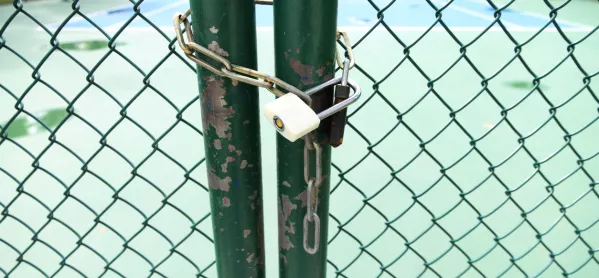- Home
- Schools should be ‘the last places to be locked down’
Schools should be ‘the last places to be locked down’

Schools must come first in any planning for future Covid-19 lockdowns and should be the last places to be locked down - after pubs, restaurants and non-essential shops, the Children’s Commissioner for England has said.
Schools should only be closed as a last resort once all other options have been explored, according to Anne Longfield.
“The government’s promise that all children will be back to school after the summer holidays is a step in the right direction,” she said in a briefing published today. “However, if a second wave occurs, children must be at the heart of coronavirus planning.
Safety: Covid tests for all teachers ‘essential’
Research: Opening schools risks double strength second Covid wave
Comment: Pubs or schools? Is Covid policy written on a beer mat?
UN: Covid ‘the largest education disruption in history’
Unions: Call for ‘greater clarity’ on school reopening plans
“That means schools must be the first to reopen and the last to close during any local lockdowns. Regular testing must be also in place for teachers and pupils, to reassure parents.
“If the choice has to be made in a local area about whether to keep pubs or schools open, then schools must always take priority.”
The briefing reads: “Education should be prioritised over other sectors: first to open, last to close. When only a limited amount of social interaction is feasible, the amount accounted for by education must be protected - at the expense of other sectors/activities.
“Reducing Covid-19 transmission in the community is very important, but it should not be automatically assumed that this requires closing schools - except as a last resort.”
The briefing also contains a call for rapid testing of all teachers and students to keep schools safe and preventing entire year groups of “bubbles” from being sent home.
It explains that given what is known about how Covid-19 affects children, and how much children travel outside the home, the scientific argument for keeping educational settings open is strongest for nurseries, followed by primary schools and then secondary schools.
If schools do have to close, Ms Longfield said, then they must remain open for children of keyworkers and vulnerable children - this latter group of children should be renamed “priority children” and a concerted effort should be made to ensure they attend school.
The government should consult on the type of children covered by the priority list and allow more flexibility for teachers to identify children as a priority where they have specific concerns, Ms Longfield added.
Paul Whiteman, general secretary of school leaders’ union NAHT, said that while the association agreed with the briefing and that it is vital to get children back to school as soon as possible, some factors were beyond a schools’ control.
He said: “The last thing anyone wants to see is the re-opening of schools leading to a resurgence in the prevalence of the virus. There are many factors that will contribute to this, most of which are entirely outside a school’s control.
“School leaders are currently preparing their schools for all children to return in September, and are following all the government and health guidance they have been given in order to make it as safe as possible.
“But the success of September’s return to school rests as much on what happens outside the school gates as within. The government needs to ensure that everyone knows what actions they should be taking to keep everyone safe - we’re all going to need to work together to be successful.”
The Children’s Commissioner’s briefing also contains recommendations on remote learning, arguing that the Department for Education must expand its laptop programme so that children in all year groups who need them can receive devices and 4G Wi-Fi routers quickly.
And it refers to a rise in mental health issues among certain children following the lockdown. The Children’s Commissioner calls for local NHS mental health teams to work with schools to provide advice and support to prevent problems.
Schools should also make pastoral care a “clear priority” amid a warning that some children will struggle to go back to school after a period away and they could show this by engaging in challenging behaviour or failing to attend school.
Education Secretary Gavin Williamson said: “Getting all children back into the classroom full-time at the start of next month is a national priority, as this is the best place for them to be.
“We have always been and will continue to be guided by the best scientific and medical advice, and our detailed guidance sets out protective measures for schools to implement ahead of a full return in September.”
Keep reading for just £1 per month
You've reached your limit of free articles this month. Subscribe for £1 per month for three months and get:
- Unlimited access to all Tes magazine content
- Exclusive subscriber-only stories
- Award-winning email newsletters



